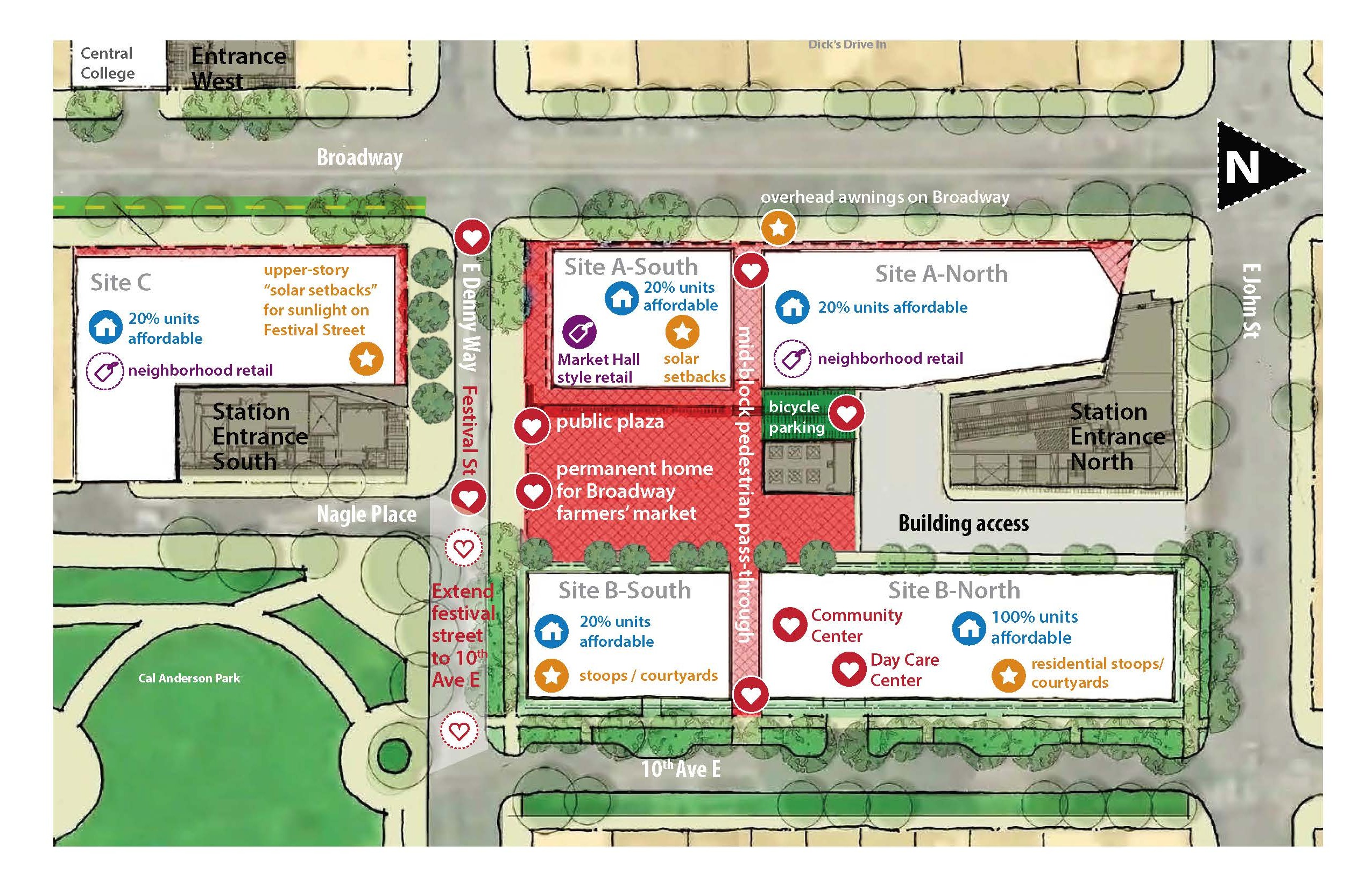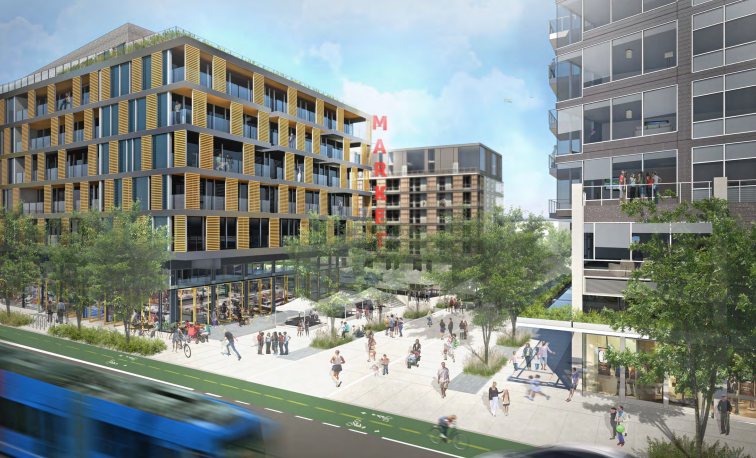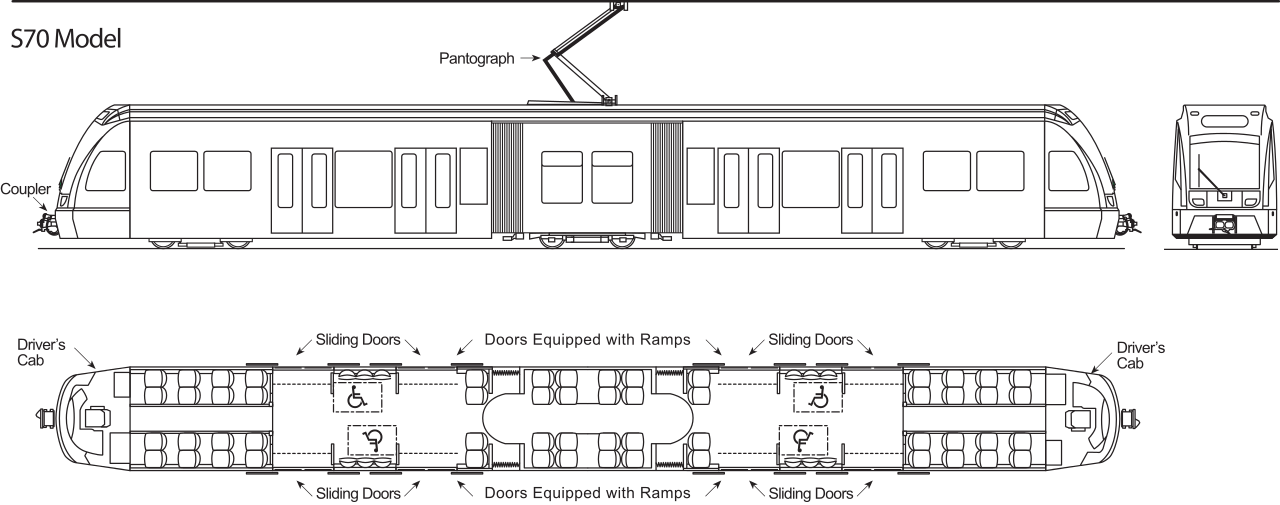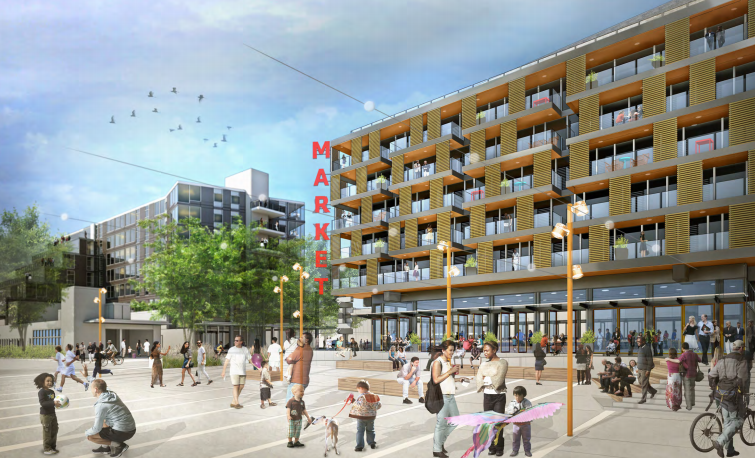In typical form, Sound Transit made a late week news dump on Thursday announcing approval of a $2.65 million property sale for affordable housing, purchase of 32 new double-decker buses, and selection of a new manufacturer of the next generation of Link light rail vehicles. The news was spurred on by the monthly meeting of the Sound Transit Board of Directors who passed each of the three motions.
Capitol Hill Transit-Oriented Development
Sound Transit owns some hot real estate on Capitol Hill, which was acquired off of Denny Way to construct the neighborhood’s newly-opened light rail station. The agency’s Board of Directors have agreed to sell a portion of their surplus landholdings to Portland-based development firm Gerding Edlen (renowned for their innovative Brewery Blocks redevelopment in Portland’s Pearl District) for $2.65 million dollars in exchange for mixed-use redevelopment and 100% on-site affordable housing. Specifically, Sound Transit is selling Site B-North to the development firm to construct 82 to 86 apartment units offered at or below 60% of the area median income (AMI). The actual number of dwelling units has yet to be finalized, but could actually top 90 affordable apartment units if all goes according to plan.

To realize the affordable housing goals, Gerding Edlen will establish a joint partnership with Capitol Hill Housing to develop the affordable housing units. The partnership will enable additional financing to be procured by Capitol Hill Housing in the form of City grants, Low Income Housing Tax Credits, and other special funding sources that wouldn’t otherwise be feasible. Individual dwelling units will be targeted to income levels ranging from 30% to 60% of the AMI, as determined by the City of Seattle’s Office of Housing. Gerding Edlen has agreed to develop about one-quarter of the units as larger family units (i.e., two- and three-bedroom units), which will be targeted for lower-income households.
As the map from Capitol Hill Champion suggests, the structure may have on-site amenities that include a daycare center and community center. The agreement, however, is somewhat flexible and would allow Gerding Edlen to push those amenities to Site B-South if they choose. So at this point, they’re still tentative until official building plans are submitted and approved.

Sound Transit is giving an option on parking for the site. None is required, but Gerding Edlen as master developer of the larger development site may choose to develop a consolidated underground parking garage beneath Site B-North. Assuming Gerding Edlen chooses to exercise the option, the terms of the Sound Transit agreement allows Site B-North to be condominiumized into two units: one unit above-ground (the Gerding Edlen mixed-use building) and one unit below-ground (a portion of the underground parking garage). Sound Transit would sell the air rights above-ground but retain the rights below-ground and accordingly lease them to the property owners and tenants at the above-ground sites.
Sound Transit has suggested a relatively robust timeline for closing and breaking ground on construction. Gerding Edlen could finish the deal in Spring 2018 if the Capitol Hill Housing funding comes through timely. Construction itself could begin in Fall 2019, pending funding and development approvals from the City.
The Board of Directors will likely take up agreements on long-term leases with Gerding Edlen for the remaining three development sites in August.
Purchase of New Double-Decker Buses
Sound Transit will purchase 32 new double-decker buses for routes providing service to and from Snohomish County. The agency already has five double-deckers in its fleet. With the new buses, the fleet will grow to a total of 37 double-deckers by late 2018. Sound Transit is sticking with Scottish-based bus manufacturer Alexander Dennis for the new order and plans to buy 42-foot buses in the Enviro500 class, similar to those operating in the fleet today.
Double-deckers have been a feature on Snohomish County-based commuter routes for years. Local transit agency Community Transit first put them into service on its commuter routes to Seattle in 2011 and branded them as “Double Talls”–a nod to Seattle’s coffee culture. Community Transit also happens to be Sound Transit’s Snohomish County service contractor for ST Express routes, so it’s no surprise that double-deckers eventually made their debut onto Sound Transit-branded routes in late 2015.
Double-decker buses have been a wise choice for commuter routes. Compared to their articulated brethren, double-decker buses have substantially higher capacity, provide greater maneuverability in tight spaces, and have better passenger flow and accessibility features. On the capacity front, the Alexander Dennis buses boast 82 seats versus the 56 seats on articulated buses. That translates to a 30% increase in seated passenger capacity. At crushload, the double-deckers can hold well over 100 passengers, including those standing.
The 32 new double-deckers will replace their aging articulated bus counterparts. 16 of the articulated buses will be fully retired as they’re at the end of their useful life. The other 16 articulated buses will be reassigned to ST Express routes operated in King County by Metro Transit, allowing for service expansion.
Each double-decker bus costs approximately $970,000 bringing the total contract value to just over $33 million (inclusive of contingency funding). First delivery of the new double-deckers is anticipated in April 2017 with ongoing deployment through the end of 2018. Sound Transit may add more in the future, too, retaining rights to exercise purchase of a further 43 double-decker buses under the Alexander Dennis contract.
New Light Rail Vehicle Manufacturer
Sound Transit has exclusively used Japanese-built Kinkisharyo light rail vehicles for Central Link thus far, but that’s about to change after yesterday’s board meeting. Sound Transit has selected a new manufacturer for its next generation of light rail vehicles (LRV). German-based Siemens was successful in its request for proposal submission with their S70 (Avanto) LRV model. The S70 is widely used across light rail systems in North America, like Portland’s MAX and Minneapolis/St. Paul’s METRO.

Gordon summarized the details on the blog yesterday saying:
The RFP has requested proposals for vehicles that are similar in layout, dimension, and size to the current fleet. This double-articulated design, w/long outer segments (‘A’ and ‘B’ cars) and a short center segment (‘C’ car) is colloquially known as “two rooms and a bath” and has become the standard design in use in North America.
The RFP indicates that these new vehicles must be mechanically compatible with the current fleet, but not electronically compatible. This means that in an emergency, any train will be able to attach itself to the broken one, in order to tow it to the nearest station/yard, but the two vehicle types will not be able to run together in the same train in passenger service. While this decision does reduce overall fleet flexibility, this arrangement allows Sound Transit to specify the latest in systems and amenities that were not available when the original fleet was built.
More details on the contract will come in September.
Stephen is a professional urban planner in Puget Sound with a passion for sustainable, livable, and diverse cities. He is especially interested in how policies, regulations, and programs can promote positive outcomes for communities. With stints in great cities like Bellingham and Cork, Stephen currently lives in Seattle. He primarily covers land use and transportation issues and has been with The Urbanist since 2014.





